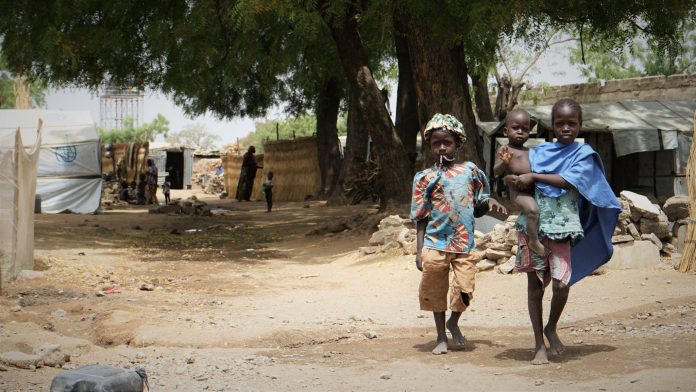The International Federation of Red Cross and Red Crescent Societies Secretary General Jagan Chapagain ends a three-day visit to Kenya, and he is calling for a massive scale-up of humanitarian and long-term assistance to communities affected by the growing hunger crisis in the Horn of Africa.
Speaking at the end of a visit to Marsabit, one of Kenya’s areas that has been hardest hit by the effects of drought—IFRC Secretary General Jagan Chapagain said:
Kenya, Ethiopia and Somalia are facing a large-scale, climate-induced, and protracted humanitarian crisis with over 14 million people food insecure and in urgent need of humanitarian assistance including at least 5.5 million children facing acute malnutrition. 6.1 million people in Ethiopia and 4.1 million people in Somalia are in urgent need of humanitarian assistance.
In Kenya, 3.5 million people are acutely food insecure, with eastern and northern Kenya’s most arid and semi-arid lands experiencing critical drought conditions.
This silent disaster has been overshadowed—and to a significant extent amplified—by the Ukraine crisis.
“But it isn’t just food and water that people need here – it is what is happening in the background, the unseen issues such as sexual and gender-based violence, and the profound impacts on mental health. An example given was of women walking over 40 kms to reach potable water – what happens on the journey is unthinkable,” added Mr Chapagain.
“I have seen firsthand the level of suffering caused by drought in Marsabit. There are highly unacceptable levels of malnutrition, a global acute malnutrition (GAM) rate of 53.6 per cent in this particular ward, one of the highest in Africa. The situation is rapidly deteriorating. We need immediate humanitarian assistance to reach the most vulnerable. We also need long term solutions that address the impact of climate change including investment in resilient livelihoods.
Dr Asha Mohammed, Secretary General of the Kenya Red Cross Society, who was also in Marsabit, said:
“The fact that people in Marsabit have lost over 70 per cent of their livestock, which is their main source of livelihood, means that it will be a long and slow path to recovery. Our teams are playing a central role in reducing the risks that families are facing. They have provided cash assistance, food assistance and improved water treatment practices, but the need to rehabilitate water systems remains urgent. We call all our partners and stakeholders to support our efforts.”
This strategy is aligned with the IFRC’s Pan African Zero Hunger Initiative that undertakes a holistic approach to food security, integrating specific interventions for rapid nutrition, food security and livelihood support for acute food- insecure households and communities, with a long-term strategy working towards zero hunger and sustainable recovery.



















